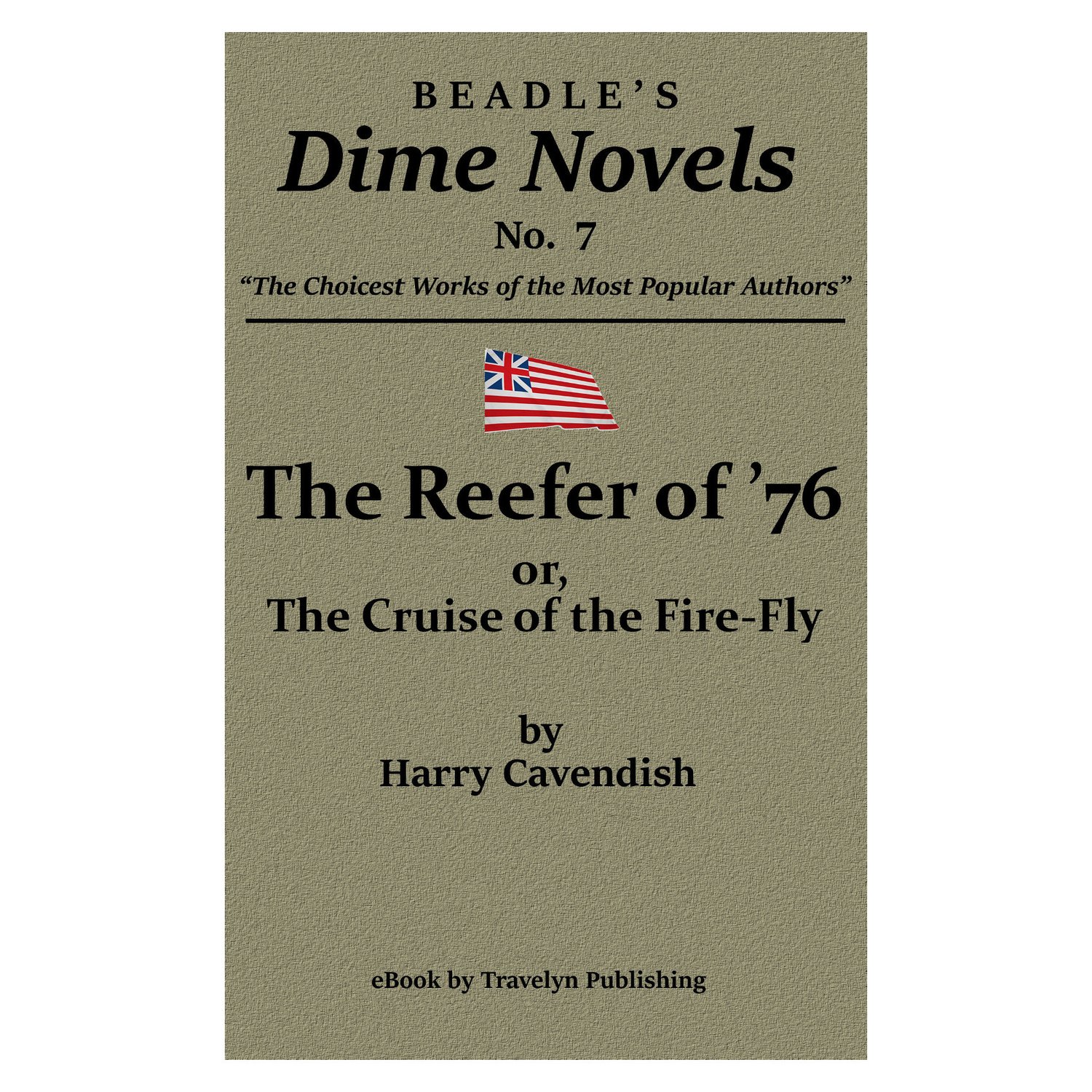
The Reefer of ’76; or, The Cruise of the Fire-Fly
Published in 1860, this novel about a midshipman—or “reefer”—on a rebel man-of-war operating under the flag of the Colony of New York during the American War of Independence takes the reader from the early war days before the Declaration of Independence through various adventures in the Caribbean and British Channel, places the hero temporarily on John Paul Jones’s Bon Homme Richard during the capture of the Serapis, and finishes with a romantic, happily-ever-after ending for the hero at war’s end in France. This was No. 7 of “Beadle’s Dime Novels” which was one of the most popular 19th-century dime novel series, reportedly selling hundreds of thousands of copies and being responsible for coining the term “dime novel.” Literally “coining” the term: each issue of the series carried the imprint of a U. S. coin showing the words “ONE DIME” which a Supreme Court decision ultimately ruled was the publisher’s exclusive and protected trademark. The series started June 9, 1860 and ended November 17, 1874.
Harry Cavendish, the listed author for this novel, was a pen name for Charles Jacobs Peterson (July 20, 1818–March 4, 1887), a well-known author and publisher who also wrote under the names Harry Danforth, J. Thornton Randolph, and Henry R. Shipley.
Preparing old books for digital publication is a labor of love at Travelyn Publishing. We hold our digital versions of public domain books up against any others with no fear of the comparison. Our conversion work is meticulous, utilizing a process designed to eliminate errors, maximize reader enjoyment, and recreate as much as possible the atmosphere of the original book even as we are adding the navigation and formatting necessary for a good digital book. While remaining faithful to a writer’s original words, and the spellings and usages of his era, we are not above correcting obvious mistakes. If the printer became distracted after placing an ‘a’ at the end of a line and then placed another ‘a’ at the beginning of the next line (they used to do this stuff by hand you know!), what sort of mindless robots would allow that careless error to be preserved for all eternity in the digital version, too? Not us. That’s why we have the audacity to claim that our re-publications are often better than the originals.
